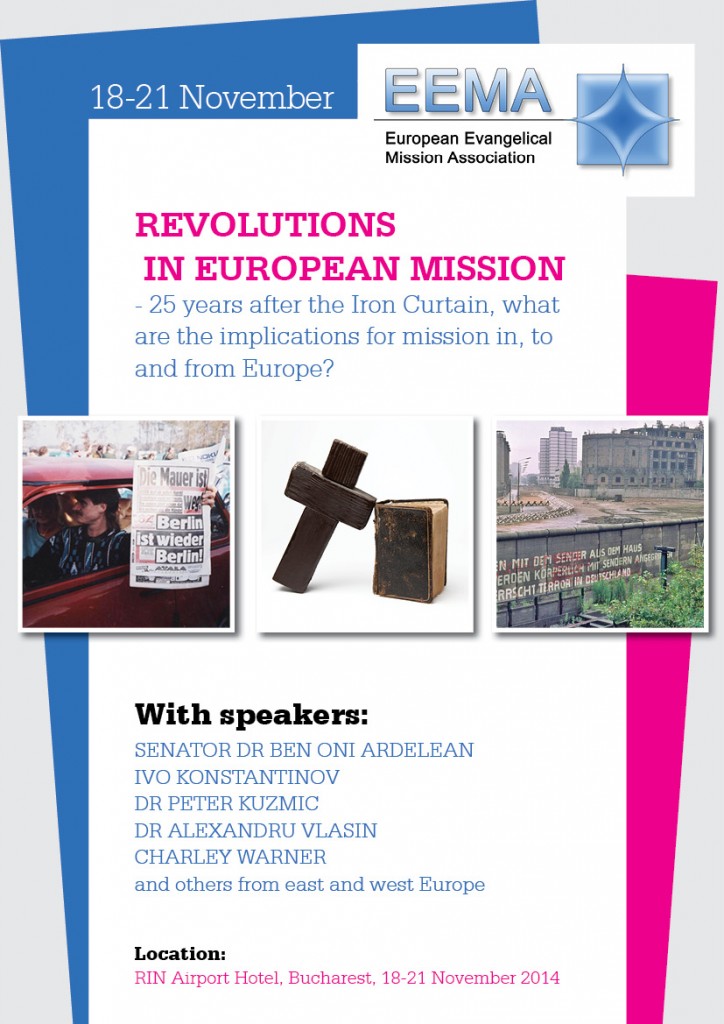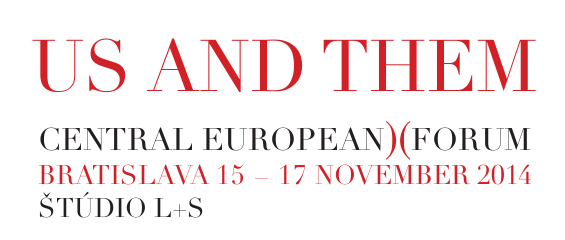EEMA Conference 2014
This year’s EEMA conference took place in Bucharest from 18th to 21st November. As is appropriate on the anniversary of the fall of the Iron Curtain it reflected on 25 years of mission in eastern Europe and where mission to, in and from Europe goes in the next 25 years.
85 people from 23 different countries attended, including a variety of speakers representing mission agencies, Bible colleges and denominations were present, representing a variety of viewpoints both from within and outside Europe.
A dominant theme to emerge from the conference was how much the first couple of decades after the fall of the wall were often characterised by misunderstanding and mistrust between east and west, though we were encouraged to see that in recent years there has been more of an effort at mutual understanding and co-operation. It could even be said that now, where the shadow of the wall was once very long, a new bridge is being built, bringing together different communities to talk, relate together and collaborate to bring the gospel to unreached communities in Europe and beyond.
Following an introduction our hosts Wolfgang Büsing (Director, AEM Germany) and Martin Lee (Director, Global Connections UK) we were welcomed to Romania with greetings from Rev Virgil Achihai (President, Romanian Evangelical Alliance), Dr Otniel Bunaciu (President, European Baptist Association), and Dr Ioan Ceuta (President, Romanian Assemblies of God). Our theme of unity was underlined by the evident co-operation between these leaders of the three largest protestant denominations in Romania.
Plenary topics included:
- What has been achieved in 25 years of eastern European mission? (Dr Anne-Marie Kool)
- Geopolitical and economic implications for mission in eastern Europe (Dr Ivo Konstantinov)
- What I wish my foreign mission partners know about mission in my country (Charley Warner)
- 25 years of past and future mission cooperation between east and west Europe (Dr Alexandru Vlasin)
- Younger missional leaders: coming out of the shadow of the past (Anton Ponomarev)
Other speakers included Rev. Tim Herbert (UK), Volodymyr Kondor (UA), Niklaus Meier (CH), Viktor Ormanji (MD), Camelia Vlasin (RO) and Russell Woodbridge (US), and a particular highlight was a guided tour of the People’s Palace in Bucharest together with a speech from Dr Ben Oni Ardelean, a Senator in the Romanian parliament.
Discussion centred around celebrating some of the achievements of mission workers from a variety of eastern European countries, several of whom have significant ministries in other countries, particularly in central Asia, and on working together to pool resources and move forward together in mission in, to and from central and eastern Europe.
We regret that pdfs, powerpoints and audio files are only available to people at the conference. If you weren’t present, sorry you missed out! Make sure you come to our next conference.


